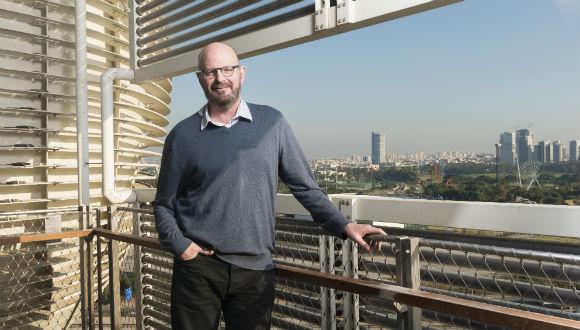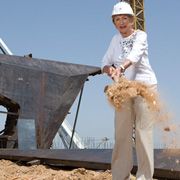Global Warming: Where to Now?
Is there now general consensus among scientists that global warming is upon us?
Yes, absolutely. There’s been a consensus on global warming for 20 years and it’s growing. The UN’s Framework Convention on Climate Change (UNFCC) and its scientific advisory body, the Intergovernmental Panel on Climate Change (IPCC), which has had 2,500 of the world’s top scientists working on it since 1988, repeatedly confirm that. These scientists read everything published and integrate it into a review. Significantly, the panel is a conservative body, no activists. Global warming is only controversial in the media, where they have to give two sides of the story and where climate skepticism often comes from think tanks funded by carbon-inducing industries. This is how they succeeded in postponing this agreement by 20 years – by creating a controversy in the media that does no longer exist within the scientific community.
The Paris summit was hailed by Western leaders as a “leap for mankind.” Is this true?
195 countries made pledges to cut down C02 emissions by 2030 and this was a major achievement. If we sum up the percentages, this is a significant cut and in the next 15 years we’ll be in better shape than we are now. However, the agreement could have been much more ambitious.
In what way?
According to the Paris agreement, the current trend of pumping more and more CO2 into the atmosphere will not be reversed for a decade. This is too long. Secondly, the 2030 target is not as ambitious as scientists had hoped for. Another drawback is the voluntary basis of the pledges. It would have been preferable to have the international community decide on the size of each country’s cut, that is, to impose a quota on them.
Is this agreement viable?
We still don’t know how enforceable it is. How do we know that countries will meet their pledges? With a more regulated agreement, countries that don’t could be sanctioned. For example, trade agreements and other economic treaties could become conditional or be restricted. Lowering emissions requires introducing new technologies, and that costs money. The summit agreed on an annual international development fund of $100 billion for developing countries. This is not enough. If we want poor countries to comply with the agreement, but still grow economically, we need to spend more.
Where does Israel stand vis-à-vis the other OECD countries in environmental regulation?
Compared to other OECD countries, Israel’s plans to lower C02 emissions are the least ambitious. Israel has pledged to cut 17% per capita of its emissions by 2030. However, Israel's population is still growing – we have immigration and a high birth rate – so a 17% cut per capita will effectively bring us to 2030 with no real cut at all.
Why such a modest goal?
Israel’s security situation is unique. When people face an existential threat they are less likely to be resolute about doing something to combat climate change. A stable, more secure country like Germany, which is currently getting 25% of its energy from wind and solar sources, has the political will to even perhaps achieve zero emissions by 2050. Israel is far from being in that stable and secure place, yet. To get this into perspective, though, Israel only accounts for .3 of 1% of global emissions.
Is Israel a leader in cleantech R&D?
Israel has great technologies and R&D – in water, green chemistry, solar energy and geo-thermal energy from deep ground layers. In fact Israel was the first country to introduce solar panels for hot water in the 1950s. This notwithstanding, we do not do as well on utilizing new technologies in this arena. We are better at selling them abroad than in introducing them at home.
What role is the Porter School playing in providing solutions for global warming?
We have many different research directions. We have students developing models that can predict how climate change will impact specific locations. One of our students, Hofit Ben-Shalom, developed a model for Beersheba. It shows that whereas today Beersheba sees heat stress for 6-7 hours a day three or four months a year, by 2030 it is projected to have heat stress more hours a day and more months a year. This is crucial for city planners: when planning a new neighborhood, for example, you need to know how to organize the sidewalks, how to provide adequate shade and water resources for generations to come.
We have an industrial ecology lab, run by Dr. Vered Blass, that is assessing the relative “price” in carbon emissions of different products, helping to create a database for use throughout the world. We have biologists looking at how plants might adapt to conditions of global warming: some might become extinct, others might adapt. And others are looking at how to use biomass from algae to produce energy.
And on the policy front?
In my own research I have looked at how cutting emissions would affect different socio-economic levels. The rich would be able to afford an electric car and to insulate their homes well, but a poor family wouldn't have the means to invest in emission-cutting technologies. It’s a question of environmental inequality.
We have people from public policy looking at energy regulations. And we hold regular workshops and conferences on the topic. To sum up, I would say that we at the Porter School are leading the way in Israel in interdisciplinary research on climate change issues.
The Porter School of Environmental Studies was founded in 2000 by the Porter family of Israel and the UK to deepen knowledge and train a new environmental leadership in Israel. Porter School Head Prof. Danny Rabinowitz is involved with numerous environmental NGOs in Israel and around the world, including serving since 2010 as Chair of the Association of Environmental Justice in Israel.






